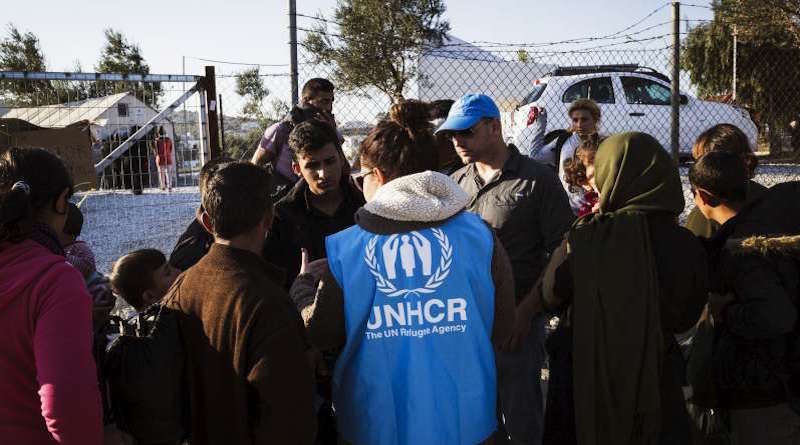UN Refugee Agency training to strengthen coordination in Greece response
The UN Refugee Agency kicked off a series of training workshops this week in Greece to provide additional tools on how to strengthen coordination among many partners. This will help ensure their collective efforts in support of national and local authorities deliver improved living conditions for the tens of thousands of refugees in the country.
“There are important challenges today in Greece in the refugee response but the situation is manageable,” said Giovanni Lepri, United Nations High Commissioner for Refugees (UNHCR) Deputy Representative in Greece. “Clear communication and coordination among everyone involved however is vital in ensuring all of these efforts result in prompt, effective solutions. That is exactly what our workshops aim to deliver,” Lepri said.
The first of three UNHCR Leadership and Coordination workshops started Monday in Athens and was attended by national and international NGOs, UN sister agencies and other actors in Greece’s refugee response effort.
That three-day workshop will be followed immediately by a second session in Athens and a third workshop to take place in the northern city of Thessaloniki May 23 through 25. These will also be attended by representatives from the Greek government.
“We salute the effort,” said Alternate Migration Policy Minister Yannis Mouzalas. “Its value and effectiveness will be determined in the field where, in line with an EU decision, coordination is built around state planning.”
In addition to bringing together all of the key actors involved in the overall refugee response effort being led by the Greek government, the workshops will:
- Provide basic coordination training for new sector coordinators
- Develop coordination skills for more experienced coordinators
- Deliver basic training to those directly involved in inter-agency coordination
The workshops were made possible largely thanks to funding from the European Commission’s Humanitarian aid and Civil Protection department (ECHO).
They are being held as part of the UN Refugee Agency’s efforts to support the Greek government in its ongoing work to develop and implement plans to provide protection and assistance to more than 54,000 refugees and migrants in the country.
SOURCE: UNHCR




